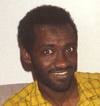A Canadian citizen travelling abroad is arrested at the behest of a Canadian security agency and accused of being a terrorist. He is imprisoned in a foreign country and probably tortured. Four years later the RCMP admits there is no evidence against him yet; his attempts to return home are blocked by the government. No, this is not a bad dream or a one-time slip up; apparently, it is a reality of today’s Canada.
It would be nice to think that our government had learned from the Maher Arar affair, but Abousfian Abdelrazik’s ordeal in Sudan is convincing proof of the contrary.
Both of us are law students who have intensively studied Canadian national security law. As students, we approach our contentions humbly, recognizing our place in this debate. Our motivation to speak out comes from what we have been taught of the law and led to believe about where it is supposed to guide us. But even without that background, as two Canadian citizens, we would be equally motivated by the injustice of what is happening to a fellow Canadian.
For six years now, Mr. Abdelrazik’s plight has highlighted that Canada’s commitments to the rule of law and the value it places on citizenship are not absolute, but instead are a matter of convenience.
Abousfian Abdelrazik is a Canadian citizen with a family in Montreal. He comes from Sudan. Believing him to be an associate of al-Qaeda, the Canadian Security Intelligence Service (CSIS) had him arrested by Sudanese authorities in August 2003 while he was in Sudan to visit his ailing mother.
He has not been home since.
Yet, for all the allegations, Mr. Abdelrazik is not a terrorist. The Sudanese released him twice and wondered why they were holding him in the first place. In 2007 the RCMP admitted it could not find “any current or substantive information” to indicate he was “involved in criminal activity.”
Returning home, though, has been a challenge. Contrary to the wishes of the Canadian government, he remains on the UN no-fly list. And while individuals on the no-fly list are technically permitted to fly home, for Mr. Abdelrazik that has not been possible: he does not have a passport anymore. It expired while he was in prison.
After the government failed to follow through on promised travel documents, which he requires to get home, Mr. Abdelrazik is stuck where he has been living since late April 2008 — the lobby of the Canadian embassy in Sudan.
He was recently offered emergency travel documents, again, on the condition that he buys his own ticket. Knowing he is broke and destitute, over 100 Canadians defied a government threat to charge anyone who helped him, and chipped in to buy his ticket. For a second time his flight departed without him; the government failed to live up to its end of the bargain.
Mr. Abdelrazik has never been charged with a crime, under a provision of the Anti-Terrorism Act or the Criminal Code or, for that matter, under Sudanese law. Allegations against him have turned out to be unsubstantiated. Yet, he has been a prisoner for six years. Worse, his detention was at the hands of the Sudanese, notorious for abuse and torture. And, worst of all, that detention took place because our government asked for it.
Terrorism is scary and deadly. Long before 9/11, the Air India bombing demonstrated to Canadians the heavy price a nation could pay if attacked.
Protecting our national security must be a paramount priority of every government and our security and defence agencies. But we do not have carte blanche.
What has happened and continues to happen to Mr. Abdelrazik is wrong. In the wake of 9/11 Parliament passed laws to enable us to prosecute individuals alleged to have done the things he was falsely alleged to have done. We do a disservice to those laws, said to be the bedrock of our foundation as a just society, when we turn a blind eye to them, ask Sudan to do our dirty work and then refuse to own up to our shortcomings.
We are taught about fundamental principles, the rule of law, the Charter of Rights and Freedoms, and how they define us as a nation. As law students we are steeped in that culture — the belief in the promise and potential of those ideas. Yet, for all their grandeur and symbolism, one man, holed up in a lobby half way around the world is shedding light on their true value.
It is time to put an end to all of this. Bring Abousfian Abdelrazik home already.
James Gotowiec and Josh Scheinert are students at Osgoode Hall Law School in Toronto.



